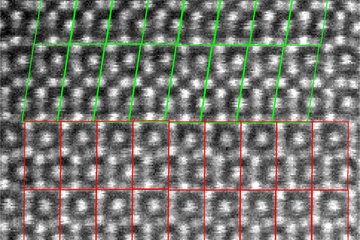All genres
21.
Thesis - PhD
Characterization and simulation of bainite transformation in high carbon bearing steel 100Cr6. Dissertation, RWTH Aachen, Aachen, Germany (2014)
22.
Thesis - Master
Microstructural Investigations of Heavily Rolled Ni-9at.%W Sheets Designed as Substrate for Superconducting Layers. Master, RWTH Aachen, Aachen, Germany (2018)
23.
Thesis - Master
Investigation on the Influence of Hydrogen on Dislocation Formation during Nanoindentation in TWIP Steels. Master, RWTH Aachen, Aachen, Germany (2018)
24.
Thesis - Master
Measurement of solidification characteristics of steel during Selective Laser Melting using high-speed pyrometry. Master, RWTH Aachen, Aachen, Germany (2018)
25.
Thesis - Master
3-dimensional investigation of the crystallographic prior-austenite grain boundary characters in martensitic steels. Master, RWTH Aachen, Aachen, Germany (2018)
26.
Thesis - Master
Effect of post-heat treatment on the microstructure and mechanical properties of SLM-produced IN738LC. Master, RWTH Aachen, Aachen, Germany (2017)
27.
Thesis - Master
Characterization of the crack formation mechanism in Ni-based superalloy Inconel 738LC produced by Selective Laser Melting (SLM). Master, Institut für Eisenhüttenkunde, RWTH Aachen, Aachen, Germany (2015)
28.
Thesis - Master
Characterization of the Microstructure and Mechanical Properties of Maraging Steels Produced by Laser Additive Manufacturing. Master, RWTH Aachen University, Aachen, Germany (2014)











